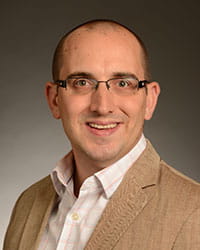Sleep as Medicine: Extending Sleep Reduces ADHD Symptoms in Teens
Published April 2019 | Journal of the American Academy of Child & Adolescent Psychiatry
Teenagers are notorious for getting too little sleep. For those with ADHD, the problem is epidemic. Up to 75% of youth with ADHD have sleep troubles, making them less attentive, more oppositional, and less successful at school.
Stimulants are one of the only proven treatments for ADHD-related distractibility and hyperactivity, but they bring a host of risks and side effects. Now, a study led by Stephen Becker, PhD, and Dean Beebe, PhD, shows that simply increasing sleep can alleviate some ADHD symptoms.
The study included 72 teenagers, ages 14 to 17, who were not taking stimulants during their summer breaks. They completed a week of sleep restriction, in which they were allowed no more than 6.5 hours of sleep each night, and a week of sleep extension, in which they went to bed 9.5 hours before they had to wake. In the extended sleep week, the teens averaged 1.6 hours more sleep each night than in the restricted week.
With less sleep, the teens were less attentive and more oppositional, according to parent reports. They were also sleepier during the day, teens and parents agreed, and had sluggish cognitive tempo. Those are symptoms related to ADHD that can include dreaminess, grogginess, frequent staring and slow working speed.
“The combination of adolescence and ADHD creates a double-whammy for kids,” says Beebe. “If we can take that away or even alleviate it a bit, we have the potential to reduce symptom burden and, in doing so, maybe lower medication doses and side effects. That would be better overall care.”






